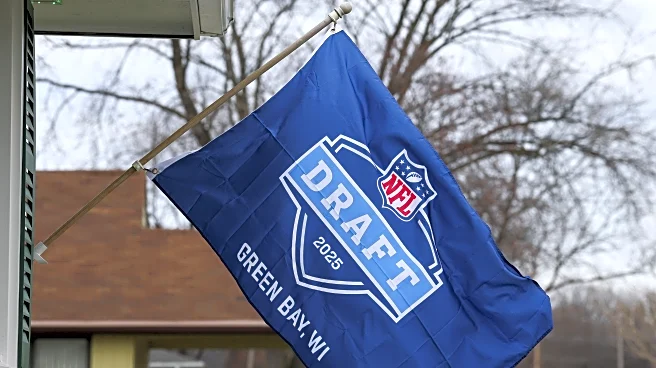Rapid Read • 8 min read
Niger's military government has announced the nationalization of the country's only industrial gold mine, previously operated by an Australian company. The decision was made following accusations of serious breaches by the operator, including failure to meet a $10 million investment plan. This move is part of a broader strategy by the junta, led by General Abdourahamane Tiani, to gain control over Niger's natural resources. The nationalization comes after a military coup that ousted former President Mohamed Bazoum. The government cited the mine's alarming economic situation, including tax and wage arrears, layoffs, rising debt, and halted production, as reasons for the takeover. This action reflects a trend in West Africa where military juntas are tightening control over mining contracts to secure greater local benefits.
AD
The nationalization of the gold mine in Niger is significant as it highlights the increasing interventionist approach of military governments in West Africa regarding resource control. By taking control of the mine, Niger's junta aims to ensure that the country's natural resources benefit the local population more directly. This move could impact foreign investment in the region, as companies may face increased scrutiny and pressure to meet local investment commitments. The nationalization also underscores the security challenges in Niger, where insurgent activities have affected mining operations. The broader implications include potential shifts in mining policies across West Africa, as other countries may follow suit in renegotiating contracts to increase state participation.
Following the nationalization, Niger's government may focus on stabilizing the mine's operations and addressing the economic issues cited. The junta's actions could lead to further nationalizations or contract revisions in the mining sector, affecting foreign operators. Stakeholders, including international mining companies, may need to reassess their strategies in Niger and other West African countries with similar political climates. The move may also prompt discussions on resource management and local benefits in the region, potentially influencing policy changes and investment strategies.
The nationalization of the gold mine raises ethical and legal questions about the rights of foreign operators and the role of military governments in resource management. It also highlights the cultural dimension of resource control, as local populations seek greater ownership and benefits from their natural resources. Long-term shifts could include increased state involvement in resource sectors and changes in foreign investment dynamics, as companies navigate the complexities of operating in politically unstable regions.
AD
More Stories You Might Enjoy












